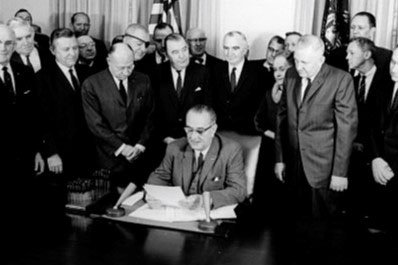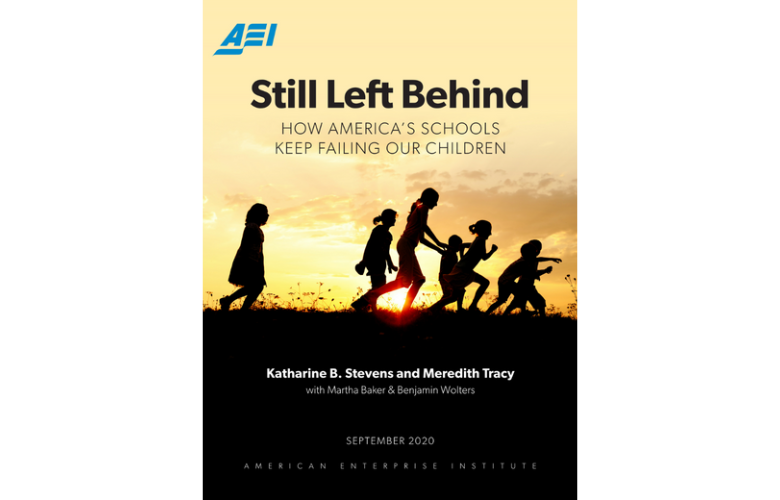All Work
Early Childhood Education
Virtual Teaching During COVID-19: Report from the Front
Four educators from disadvantaged communities in California’s Bay Area join Katharine Stevens to discuss the challenges and effects of virtual teaching.
We Need a National Tutoring Program to Avert Educational Catastrophe
As a third COVID wave sweeps the United States, achievement gaps between higher- and lower-performing students are widening. A national tutoring program is our best chance for averting an educational disaster.
Schools Won’t Work Any Better for Disadvantaged Children After COVID Than Before It
We need good schools now more than ever. But it’s hard to see how they’ll be any better after COVID than they’ve been for decades before it.
Closing the COVID Inequality Gap
Learning loss has been extensive during the pandemic, hurting some students more than others. Katharine Stevens joins the National Press Foundation for an in-depth conversation on how to close schools' growing COVID inequality gap.
Taking Stock of a Half-Century of Failed Education Reform
Our excessive focus on schooling — rather than the non-school environments that most powerfully shape children’s lives — continues to hurt the very children we are trying so hard to help.
How America’s Schools Keep Failing Our Children — Tipping Point New Mexico
Paul Gessing and Katharine Stevens discuss the impact of COVID 19 on children's learning. Katharine also shares findings from her recent report, "Still Left Behind: How America’s Schools Keep Failing Our Children," and explains why universal pre-K will not solve our nation's persistent education achievement challenges.
Why Children Can’t Read — and What We Can Do About It
Early reading proficiency is a crucial predictor of school, work, and life success. But a deeply flawed idea about how to teach reading is widening early inequalities, setting millions of children up to fail.
Closing the Achievement Gap | IN 60 SECONDS
Research tells us that the achievement gap doesn’t originate in schools; a half century of history tells us it can’t be closed by schools either.
Still Left Behind: How America’s Schools Keep Failing Our Children
One-third of lower-income eighth graders still fail to demonstrate even minimal competence in reading and math, and wide achievement gaps persist in every state, despite decades of ever-intensifying school reform and steadily increased spending,
The Childcare Crisis Is in K-12, Not Early Childhood
High-quality early care — whether at home, a childcare center, or grandma’s house — matters greatly to young children’s healthy development. But to get the economy going again, the critical problem is care for school-age children.
The Socioeconomic Achievement Gap Hasn’t Budged in Half a Century. Now What?
A groundbreaking new study has found that despite enormous public investment, achievement gaps between wealthier and poorer children have remained unchanged over the past 50 years.
Going Upstream: Closing the Achievement Gap Before It Starts
Leaders from Public Prep and the Parent-Child Home Program explain their innovative, new partnership, followed by a panel discussion on the potential of K–12 collaboration with early childhood and the implications of including birth-to-kindergarten in federal education law.
Closing the Achievement Gap Before It Starts
While good schools are important to children’s success, education really means human development, not schooling. And the educational opportunities that children most need to succeed begin not in school but before they can walk.
Expanding Pre-K Will Do Little for Children
Tacking additional grades onto a poorly performing school system won’t help the children who need help the most. Improving the 13 grades they already attend could help them a lot.
When School Choice is Too Little, Too Late
School choice alone isn’t enough. Real education choice means enabling parents to make sure their child’s foundation is built right in the first place, starting at birth.
The Good and Bad in Virginia’s 2016 School Readiness Report Card
Done right, high-quality early childhood programs can help to level the playing field for disadvantaged kids before they enter school. But no program can inoculate children to the damaging effects of poor-quality education down the line.
Does ‘Issue 44’ Help Poor Kids?
It’s hard to see how funneling a little more money into a badly underperforming, inefficient system will result in the “high quality” schools promised by Issue 44 promoters.
Schools Aren't Everything
Despite decades of effort and trillions of dollars, neither preschool nor other reforms have made a difference by the time it really matters: when children finish school.
Early-Education Teachers Need Better Training
Early education is starting with a clean and unencumbered slate. This is the right time to make crucial decisions about how teachers should be prepared to educate very young children.
What Early Education Can Learn from the K-12 Choice Movement
Early education advocates would be wise to remember the fundamental value of school choice and what it means for the long-term viability of the early education sector.





















